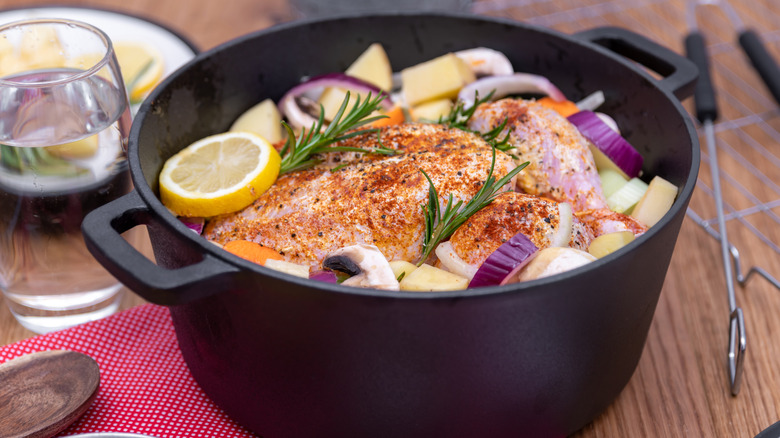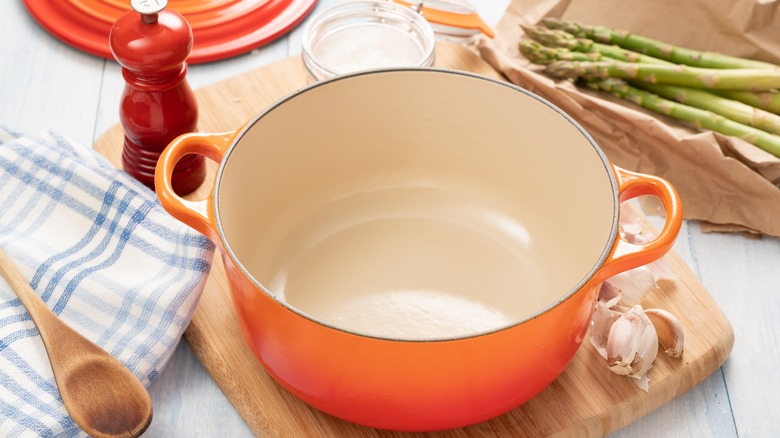How And When To Season Your Dutch Oven
A Dutch oven can be an extremely useful piece of equipment to have in your kitchen. These pots are sturdy and versatile and can be used for everything from browning meats or cooking stews, to baking bread and roasting chicken. Crafted from cast iron, Dutch ovens also offer all of the benefits that a cast iron pan does, such as good heat retention and durability. But, if you have invested, or plan on investing, in a Dutch oven, it is important to take good care of it so that it can last you a lifetime. One part of that care is seasoning.
Cast iron cooking equipment usually requires seasoning, which means coating the inside in a thin layer of oil that is heated to create a nonstick surface. This process, called polymerization, prevents food from sticking, as well as forming a protective barrier that will keep the pan from rusting. For best results, season your cast iron Dutch oven straight after purchase. Even if it was pre-seasoned, it is better to have extra seasoning than not having enough. Doing so is not as intimidating as you would think. Simply wash and dry the Dutch oven, cover it with a thin layer of vegetable oil, and bake for one hour at 400 degrees Fahrenheit. From there on out, you should season your cast iron two to three times a year to maintain the coating.
Select the right Dutch oven to suit your needs
The truth about cast-iron kitchen items like Dutch ovens is that they seem trickier to get ready for use than they really are. If you have put adequate care into seasoning the Dutch oven and taken the proper steps to maintain it — such as washing it with hot water and a gentle scrub brush (rather than harsh chemicals and a metal scourer) and not letting it stay wet for long periods — it can become a dependable part of your kitchen. However, this maintenance is not for everyone, which is why there is a Dutch oven variety that requires no seasoning: The enameled Dutch oven.
Enameled Dutch ovens are simply cast iron Dutch ovens that have been coated in a layer of enamel. This layer serves the same purpose as seasoning; it makes the oven nonstick and protects the iron so that it stays in good shape, with the added perk that it is permanent. Enameled Dutch ovens are cleaned in the same way as most dishes — with soap and water — and can even be used to store food in the fridge, since the food won't react with the enamel. If convenience is your priority, these types of Dutch ovens are certainly the way to go. For more tips on getting started with this handy tool, check out our guide on the best ways to use a Dutch oven.

